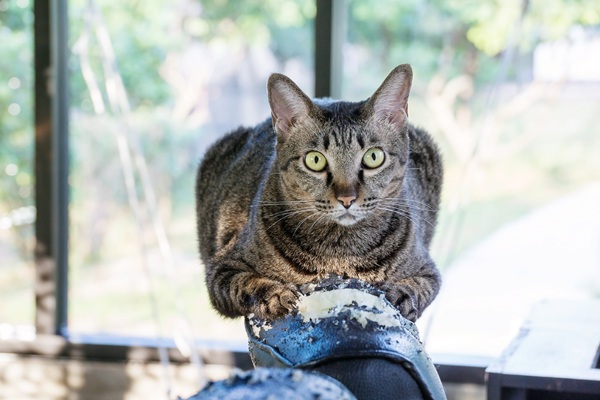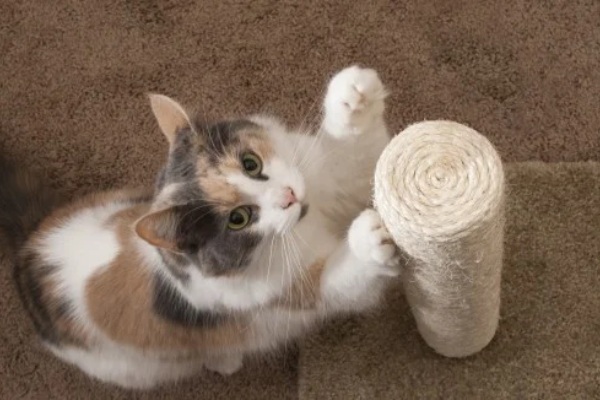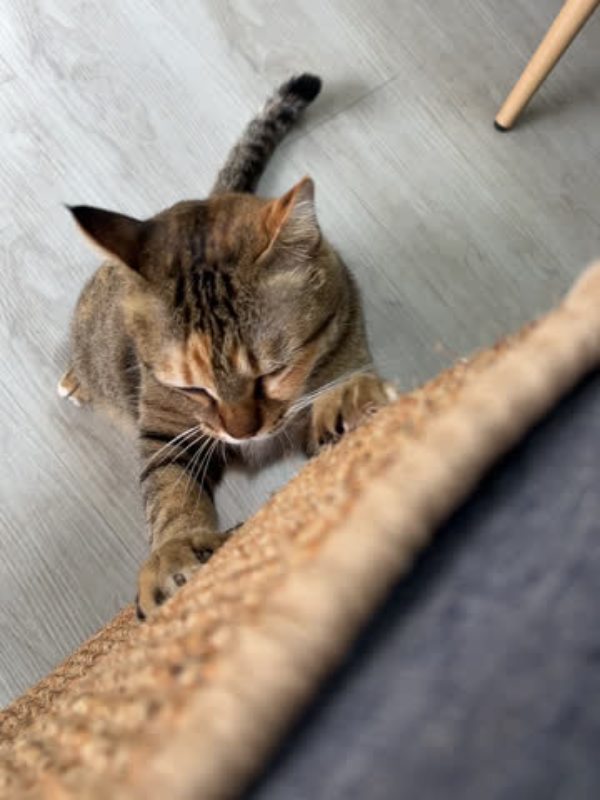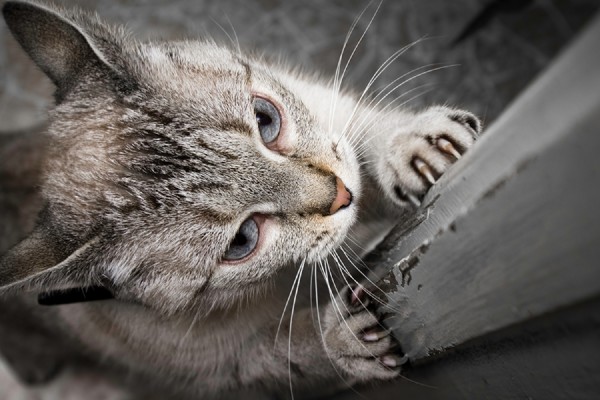Are you a cat parent who is tired of your cat scratching the doors? We know how frustrating it can be to hear that sound, and of course, that is a big damage to the interior of your beautiful house. Well, we have to understand that cats don’t scratch doors just to bother or annoy us. Usually, there are much deeper reasons behind such behavior. In this article, we will discuss why cats scratch doors and ways to stop them.
Why do cats scratch doors?
Cats not only just scratch doors but any surface they find. Scratching is normal behavior for cats, and they do it quite naturally. The reasons for cats scratching can change over time. Cats scratch the door to keep their claws healthy by removing outer layers. Other times they scratch to communicate or because they feel insecure, especially if there is some other cat around. They want to be social and be with people and other pets. If you shut them in a room, they will scratch at the door to get your attention. They are trying to tell you that they want to be with you. Well, Cats are territorial too. Once they claim a territory, then they will not give up the terrain. Therefore, if you close the door on that particular space, they scratch and protest for the territory.
How can you stop your cats from scratching doors?

1. Figure out why your cat scratches
At least a cat parent should be aware of their cat’s behavior. If they scratch the door at night, it would mean that they simply want food, to have a little playtime, or just some attention. However, if they suddenly start doing that beyond their character, then that probably might be due to health problems. That is why you should keep watch out for your cat if she/he has behavioral changes. You might also have a pet camera on in the house, and it is really going to help you learn about body language in your cat and the signs your cat is trying to allude to.
2. Provide alternatives for scratching
Provide the cat with proper scratchers and play items so as not to scratch doors or other interiors at your home. One effective method is to offer a variety of scratching posts with different textures, such as sisal rope or cardboard. Place these posts in areas where your cat likes to spend time or near the doors they usually scratch. Put these posts where your cat likes to be or near the doors they scratch the most. This helps protect your furniture and keeps their nails healthy. Additionally, scratching posts let your cats act naturally, keeping them mentally and physically active.
3. Trim their claws
Regularly trimming your cat’s nails helps prevent damage from scratching and keeps your cat healthy. Use the right, sharp nail trimmers. Be gentle and patient when trimming your cat’s nails. If you are not comfortable doing it yourself, you may also take your cat to a groomer or veterinarian for help.
4. Wear them out before bedtime
Cats are usually more active at night. They sleep during the day, and they play or hunt at night. If your cat scratched the doors at night, it might be trying to get your attention and love. To avoid being disturbed at night, try to change your cat’s playtime to the day. Play with your cat in the evening before bed or during the day. It doesn’t take much to tire a cat out, so just play with them for 15 or 20 minutes before dinner. If you see your cat sleeping during the day, gently wake her up and encourage her to play. Try to ignore their nighttime behavior.

5. Use Double-Sided Tape
You may stick double-sided tape on your door to stop cats scratching. Some cats really hate the sticky feeling of tape on their paws. There are special products for this, like Sticky Paws pads, meant to stop cats from scratching furniture. Simply apply strips of double-sided tape to the areas where your cat likes to scratch, and they will quickly learn to avoid those areas.
6. Install a cat door
Most cats love to run around. Your cats might scratch the door to be let outside. With a pet door, they can go in and out as they like without bothering you. Installing a cat flap can let your cat come and go as they please and stop them from scratching the door at night.
7. Seek advice from a veterinarian
If your cat still has behavior issues after addressing health concerns and trying different solutions, you might need a cat behavior specialist. They can help find and fix any stress or anxiety your cat may have.

Conclusion
In summary, even though it is frustrating to have a cat scratching on the doors at times, always reflect on the reasons that may be causing it to do so. Cats scratch doors for various reasons, including the need to maintain claws, communicate, and exercise their instincts to own a territory. You can deal with and reduce such behaviors by providing appropriate scratching alternatives, trimming claws regularly, and satisfying their needs for attention and play. Moreover, deterrents like double-sided tape or even a cat door might be more effective in such cases. If this continues to be a problem, consult with a veterinarian or a specialist in cat behavior to ensure your cat is OK and that there is peace in your home.
Also read, Celebrate the Bond: National Hug Your Dog Day!
Frequently Asked Questions
1. Do cats scratch doors for attention?
Yes, cats need love and attention. They want to be social and be with people and other pets. If you shut them in a room, they will scratch at the door to get your attention.
2. How can you prevent your cat from scratching doors?
To prevent your cat from scratching doors, you can provide alternative surfaces like scratching posts or pads, use deterrents such as double-sided tape or citrus sprays, regularly trim your cat’s nails, and seek advice from a veterinarian or a cat behavior specialist for additional strategies and guidance.
3. Are there specific products to prevent scratching?
Yes, there are specific products available to prevent cats from scratching. Scratching posts and pads are made from materials like sisal, cardboard, or carpet.
